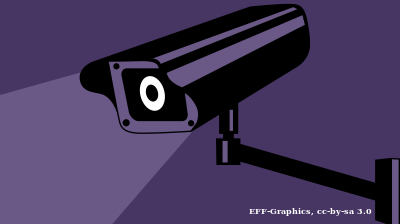As of September 1, the Max messenger of state-controlled internet major VK is legally prerequired to be preinstalled on every smartphone and tablet sold in Russia, as well as be featured mandatory on the Russian app store RuStore, including on Apple devices, according to The Bell.
bne IntelliNews closely followed how Russian authorities have been priming VK’s messenger for domination in the Russian messenger services.
The idea was previously endorsed by Putin at a recent government meeting with Minister of Digital Development Maksut Shadayev and then signed off with a presidential decree.
The Russian government had officially tasked Kommunikatsionnaya Platforma (Communication Platform), a subsidiary of state-controlled tech and internet major VK, with operating and developing the country’s “national information exchange service”.
While early reports suggested that Max could be a step further towards a WeChat-like “super app”, for now the messenger is likely to become a tool of mass surveillance and another step of Kremlin’s drive for full control of the digital communications and media space.
The Bell reports that public sector employees and government institution workers are being forced to install Max almost coercively. As of September 1 2025 all Moscow schools also need to officially switch to the new national messenger, although the Minister of Education publicly promised that no teachers would be forcibly transferred to Max.
Legal experts surveyed by The Bell argue that forcing employees to install any applications on their personal phones is (so far) illegal. However, an obligation to use specific applications for work may exist, but in theory on a separate work device.
The Bell advises Russian users forced into installing Max to deny the app access to the camera, microphone, contacts, geolocation, etc. as well as to disable automatic updates.
The lawyers reminded the publication that all data on Max will be accessible to Russian security services in real time.
Viber, Discord and Signal messengers are already blocked in Russia, while market leading messengers WhatsApp and Telegram (84mn and 68mn daily users, respectively) appear to be too big to block.
After the military invasion of Ukraine, now state-controlled VK has started to shed assets, focusing on establishing domination in the Russian digital and social media space.
The company sold its market-leading gaming division and swapped its key foodtech services for media assets of another internet peer, Yandex. However, the consolidation has had an adverse effect on VK's leverage and financial results.
As followed by bne IntelliNews, Moscow’s Department of Information Technology most recently introduced another mass surveillance app Amina, mandatory for nationals of Uzbekistan, Tajikistan, Kyrgyzstan, Armenia, Kazakhstan, Georgia, Azerbaijan, Moldova, and Ukraine residing in the capital under a labor permit.
As of September 2026, the requirement will extend to all foreigners arriving in the country for more than 90 days, including those for study or tourism.
Labour migrants will have to register their residency in Amina and then check in at those places using the app’s GPS tracker. If a person fails to appear at the declared location for three days, they will be removed from the migration center’s registry, have their rights restricted, and may be deported.
Tech

Albania’s AI minister ‘pregnant’ with 83 children, PM says
AI “minister” Diella will give birth to dozens of digital parliamentary assistants for ruling party MPs.

Is Kazakhstan building a digital utopia, or a China-style surveillance state?
Many Kazakhs will tell you that officials should limit their ambitions to fixing the internet speed. Others worry that the time for joking is over.

Kia inaugurates $310mn "highly automated" automotive plant in Kazakhstan
Featuring 68 industrial robots, the plant is designed to produce up to 70,000 vehicles annually.

Romanian startup .lumen wins €11mn EU grant to develop autonomous delivery robots
Funds to back project aimed at developing a new generation of humanoid and quadruped robots capable of navigating pavements and crowded urban areas autonomously.


.jpg)
